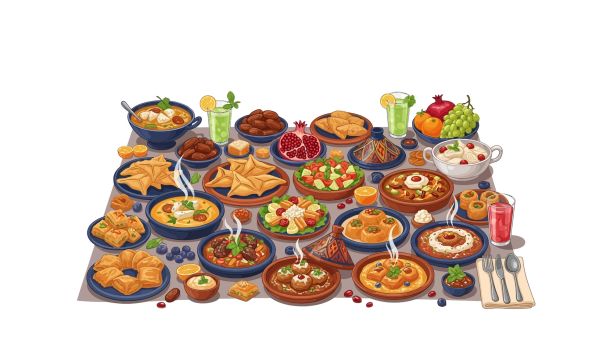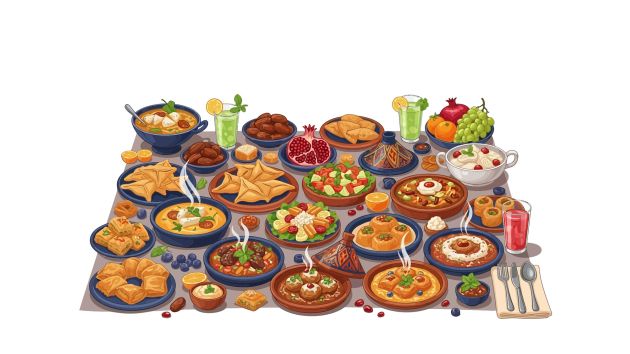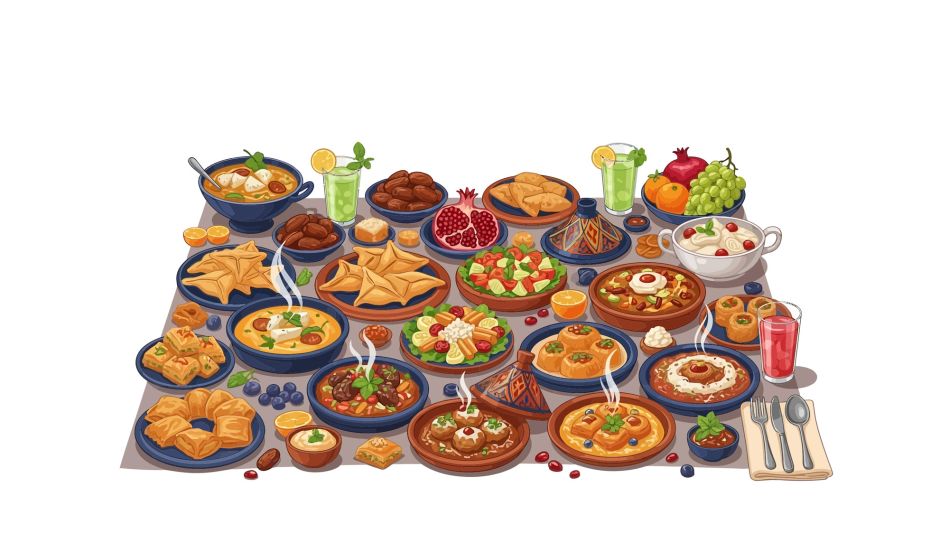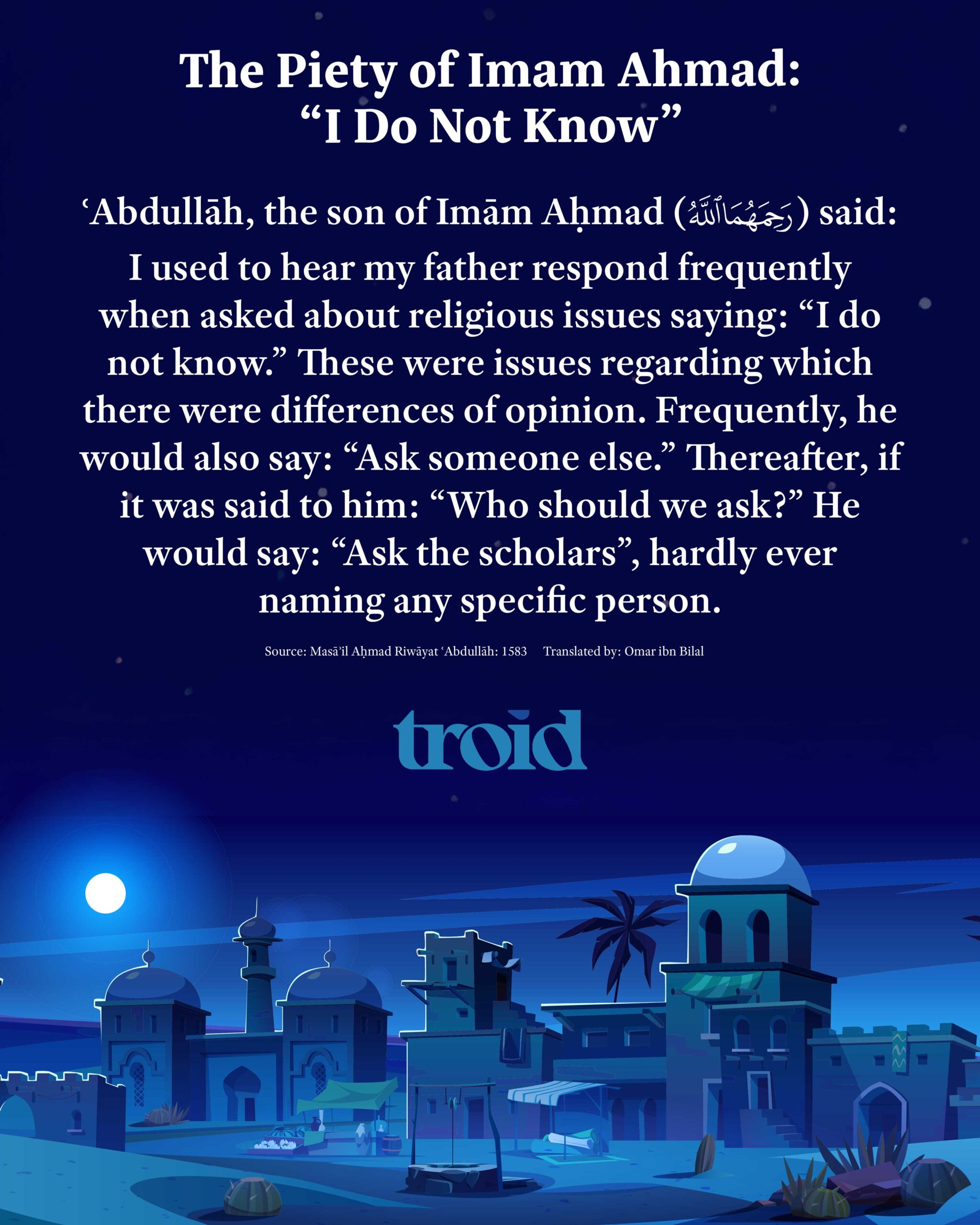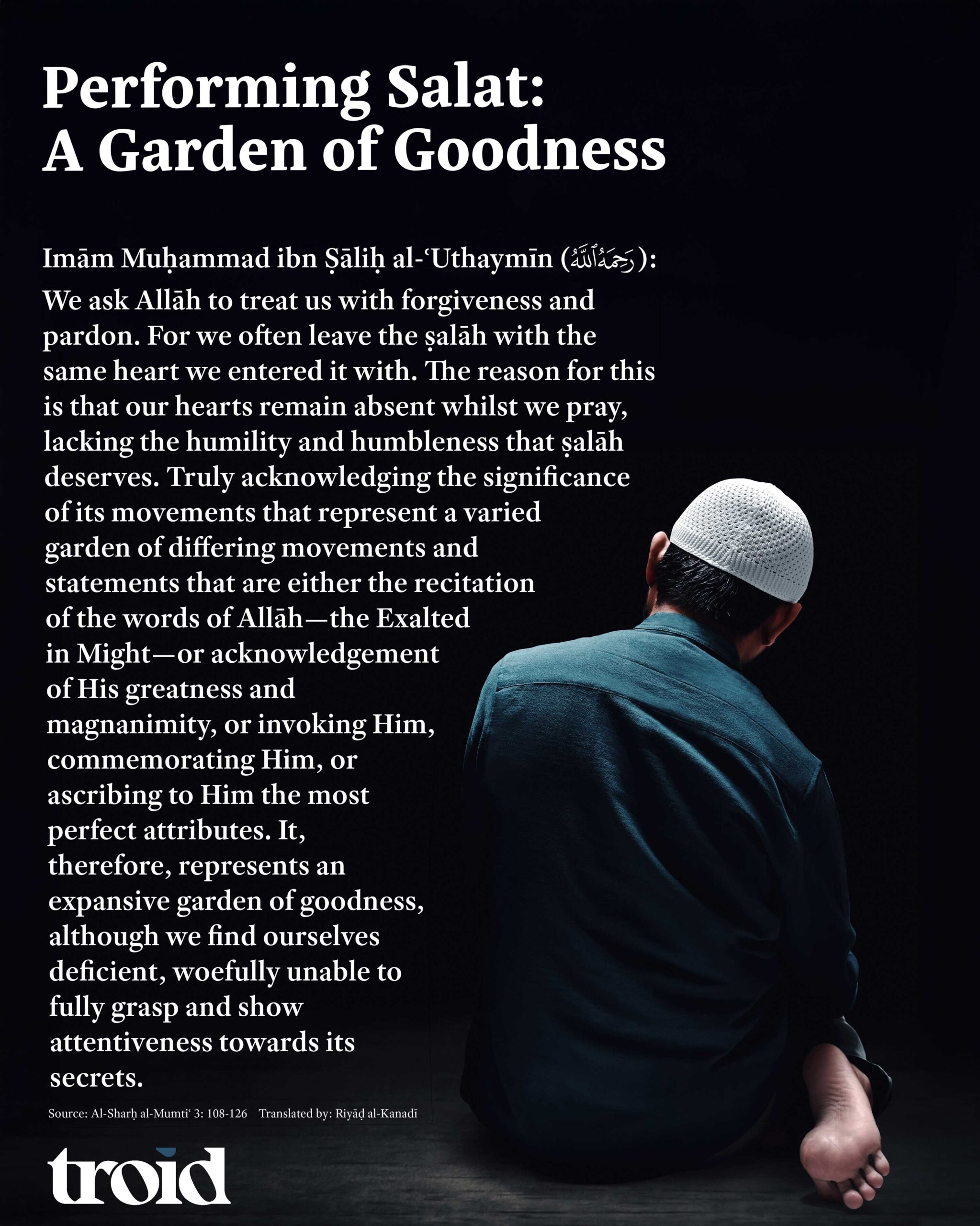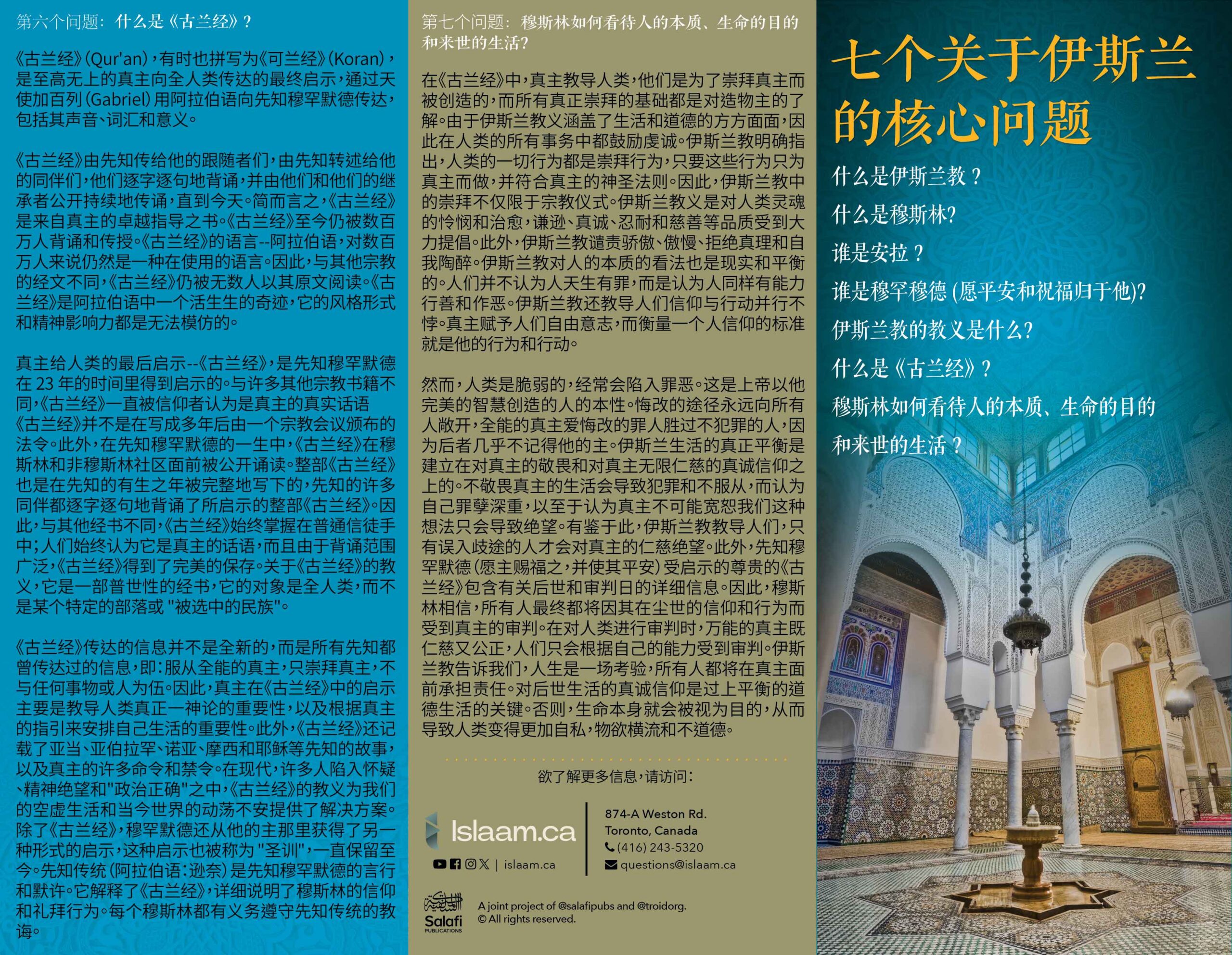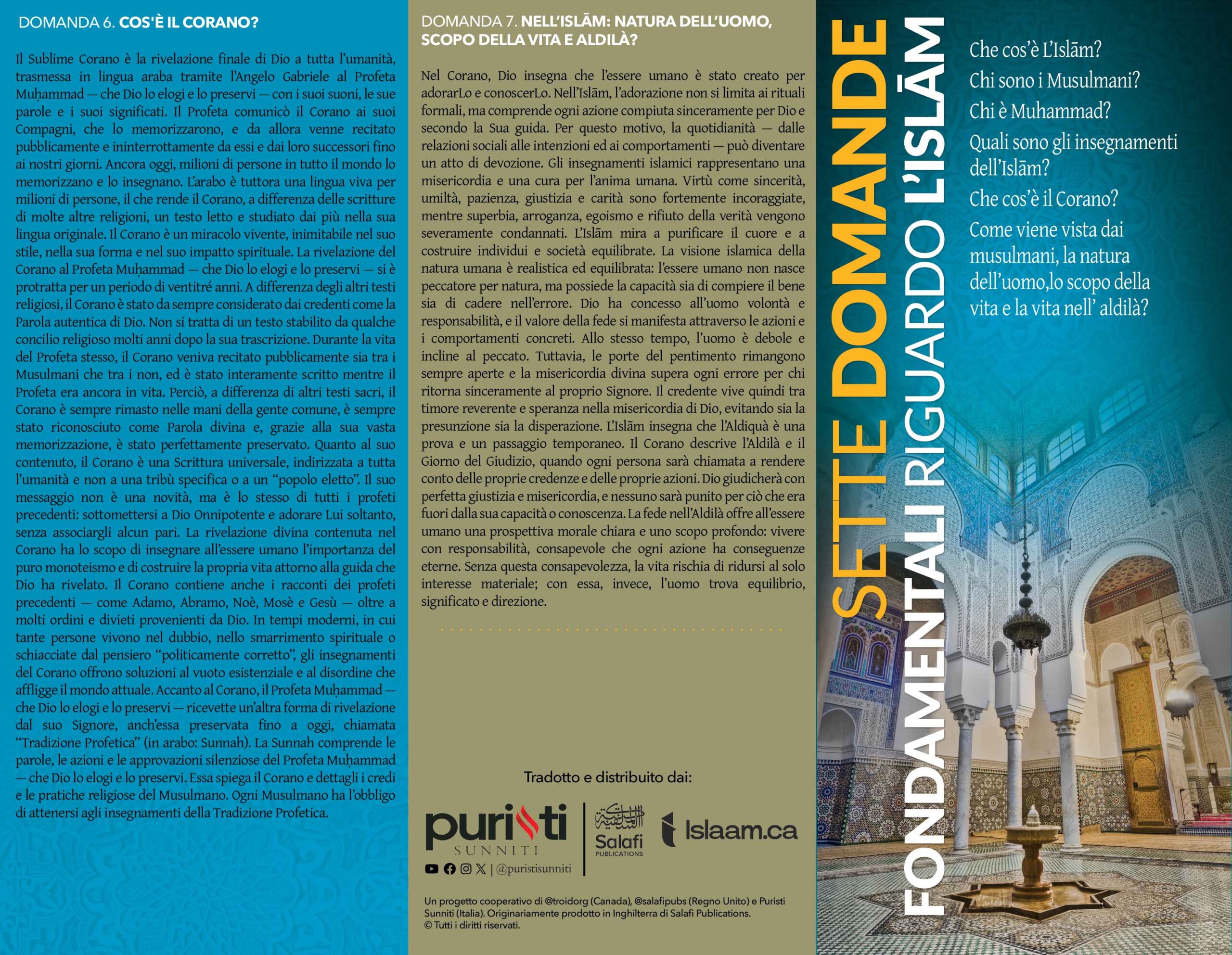Committing a Sin Because Everyone Else Is Doing It
From the card series promoting the book publication: The Scarcity of the People of the Truth in Most Generations – A Series of Scholarly Statements Mutually Affirming the Scarcity of the People of the Truth and the Abundance of the People of Falsehood in Most Generations

Everyone’s Speech Is Subject to Acceptance or Rejection Except the Prophet (ﷺ)
The Manners of Ṣuḥūr and Ifṭār
Understanding the Prophetic Sunnah of the fasting person engaging in the pre-dawn (ṣuḥūr) and post-sunset (Ifṭār) meals. The definitions, preferences, and supplications associated with these meals are discussed.
What Is Taqwá and How Can It Be Achieved?
A beautiful admonishment regarding the attainment of taqwá and the importance of reminding and advising one other of this weighty affair.
Remaining Neutral in Disputes: Does This Stance Apply When the Oppressor Is Clearly Identifiable?
A response to an enquirer on the aḥadīth concerning fitnah or dispute, and how they apply to situations where the oppressor and the oppressed are clearly distinguishable.
Committing a Sin Because Everyone Else Is Doing It
From the card series promoting the book publication: The Scarcity of the People of the Truth in Most Generations – A Series of Scholarly Statements Mutually Affirming the Scarcity of the People of the Truth and the Abundance of the People of Falsehood in Most Generations
Canada Webinar Series
Returning Sept. 2025 (إن شاء الله), we will be conducting a monthly webinar series with students of knowledge, connecting communities across Canada from east to west.
Beliefs
The Prohibition of Putting Oneself Ahead of Allāh and His Messenger (ﷺ)
A brief reminder of the obligation upon the Muslim to have taqwá of Allāh and to put the word of the Messenger of (ﷺ) ahead of all.
Commensurating Between Allāh’s Guidance and Misguidance of the Disbelievers in the Qurʾān
Understanding Engagement in Actions in Light of Divine Predestination
True Faith Stipulates Loving the Messenger (ﷺ) More Than Anyone

Remaining Neutral in Disputes: Does This Stance Apply When the Oppressor Is Clearly Identifiable?

Clarifying the Truth Is More Virtuous Than Remaining Silent
Holding Firmly to the Path of the Companion’s
Historically those who followed the sunnah of the Prophet (ﷺ), namely the companions and those with them, were protected from deviation, however those who follow their desires and rational arguments find themselves led astray.
Guarding the Heart from Innovation

If You Sit with Ahl al-Bidʿah You Stand Against the Sunnah
Videos
The Manners of Ṣuḥūr and Ifṭār
Dr. Abū Wāʾil Musá Shalīm
Understanding the Prophetic Sunnah of the fasting person engaging in the pre-dawn (ṣuḥūr) and post-sunset (Ifṭār) meals. The definitions, preferences, and supplications associated with these meals are discussed.
Committing a Sin Because Everyone Else Is Doing It
From the card series promoting the book publication: The Scarcity of the People of the Truth in Most Generations – A Series of Scholarly Statements Mutually Affirming the Scarcity of the People of the Truth and the Abundance of the People of Falsehood in Most Generations
Everyone’s Speech Is Subject to Acceptance or Rejection Except the Prophet (ﷺ)
5 beneficial points on: the obligation of following the truth, looking to the evidences, avoiding blind following, rejecting errors, and understanding the fallibility of men. A protocol for accepting or rejecting positions. From the Canada Webinar Series
Most Popular Basics: Last 30 Days
How the Correct Creed Is Reflected in th…
Refer Matters of Differing Back to the B…
How People Stray from the Straight Path
The People of Sunnah Are the People of Ḥ…
Fundamentals and Principles of Islām
Is It Obligatory to Choose a Madh`hab from the Four Imams?
Will One Gain Rewards for His Good Deeds Before Islām and Can Sinfulness After Islām Negate This?

More Astray than Cattle – Understanding the Misguided Status of the Disbelievers
Performing Salat: A Garden of Goodness
The Difference Between Ghusl (Ritualistic Shower) to Remove Janābah (impurity) and a Common Shower
Is It Legislated to Say: “My Lord I Did Not Worship You Desiring Your Paradise!”
The Course of Action When Uncertain of Which Came First: Completing Wuḍūʿ or Breaking Wūḍūʿ
The Master of Invocations in Seeking Forgiveness
The Ruling on Praying in a Graveyard

The Ruling on Severing One’s Intention in Ṣalāh

The Validity of the Prayer of Those Praying Behind an Imām Whose Ṣalāh Is Invalid or Becomes Invalidated

The Issue of Confusing Ḥarām and Ḥalāl Clothing When Performing Ṣalāh

أوقات الصلاة
| Ṣalāh | Adhān |
|---|---|
Fajr | 05:40 |
Ẓuhr | 12:50 |
ʿAṣr | 15:50 |
Maghrib | Sunset |
Jumuʿah | 1:00 PM (EST) | 1:30 PM (DST) |
ʿIshāʾ | 19:50 |

Seeking Knowledge
The Permissibility of Reciting the Qurʾān Lying Down
Evidence in favour of it being permissible to recite the Quran in any position, so long as a person is not in a state of janābah.

The Importance of Acting in Accordance with One’s Knowledge
A warning against not acting in accordance with one’s knowledge as this will result in eventual loss of this knowledge by Allāh, and likewise the one who acts in accordance with his knowledge Allāh will supplement with more knowledge.

What It Means to Be Sincere When Seeking Knowledge
The five means by which sincerity when seeking knowledge may be attained including intending to fulfil Allāh’s command, intending to preserve, protect, and follow the sharīʿāh, and intending to rid oneself and others of ignorance.
Qurʾān & Ḥadīth
Defining Qudsī Hadiths and How They Differ from Qurʾān
Four important differences between the Qudsi Hadiths — which are Allāh’s words that are narrated from the Prophet (ﷺ) — and the Qurʾān.
Islamic Legislation in the Face of Scientific Advancement
The Three Matters That Stipulate Happine…
Understanding the Ḥadīth: Leave That Whi…
Abstaining from Prohibitions, Fulfilling…
We Were in Ignorance and Evil

The Difference Between Envy and Praisewo…
A discussion on the importance of striving for goodness whilst refraining from cursing those that excel naturally. Muslims should love and encourage those trying to engage in praiseworthy acts.

The Four Foundations of Evil
An explanation of how the interplay of desire, terror, lust, and anger comprise the root of all evils.

The Impermissibility of Keeping Bad Comp…
A question on how to interact with friends who do not practice Islām.

The Difference Between Miskīn and Faqīr
An explanation on how the meanings of miskīn and faqīr differ based on the context and which is defined as being more destitute.
Leaflets
Family

Love, Romance, and the Proper Treatment of One’s Family as Exemplified by the Noble Prophet (ﷺ)
Nine points describing how a man can live honourably with his wife, and three points of advice for married couples from Imām al-Albani.
The Five Things Specifically Granted to the Prophet Muḥammad (ﷺ)
Benefits from the Life of Imām Aḥmad b. Hanbal (d. 241 AH)
Most Popular: Last 30 Days

Committing a Sin Because Everyone Else Is Doing It
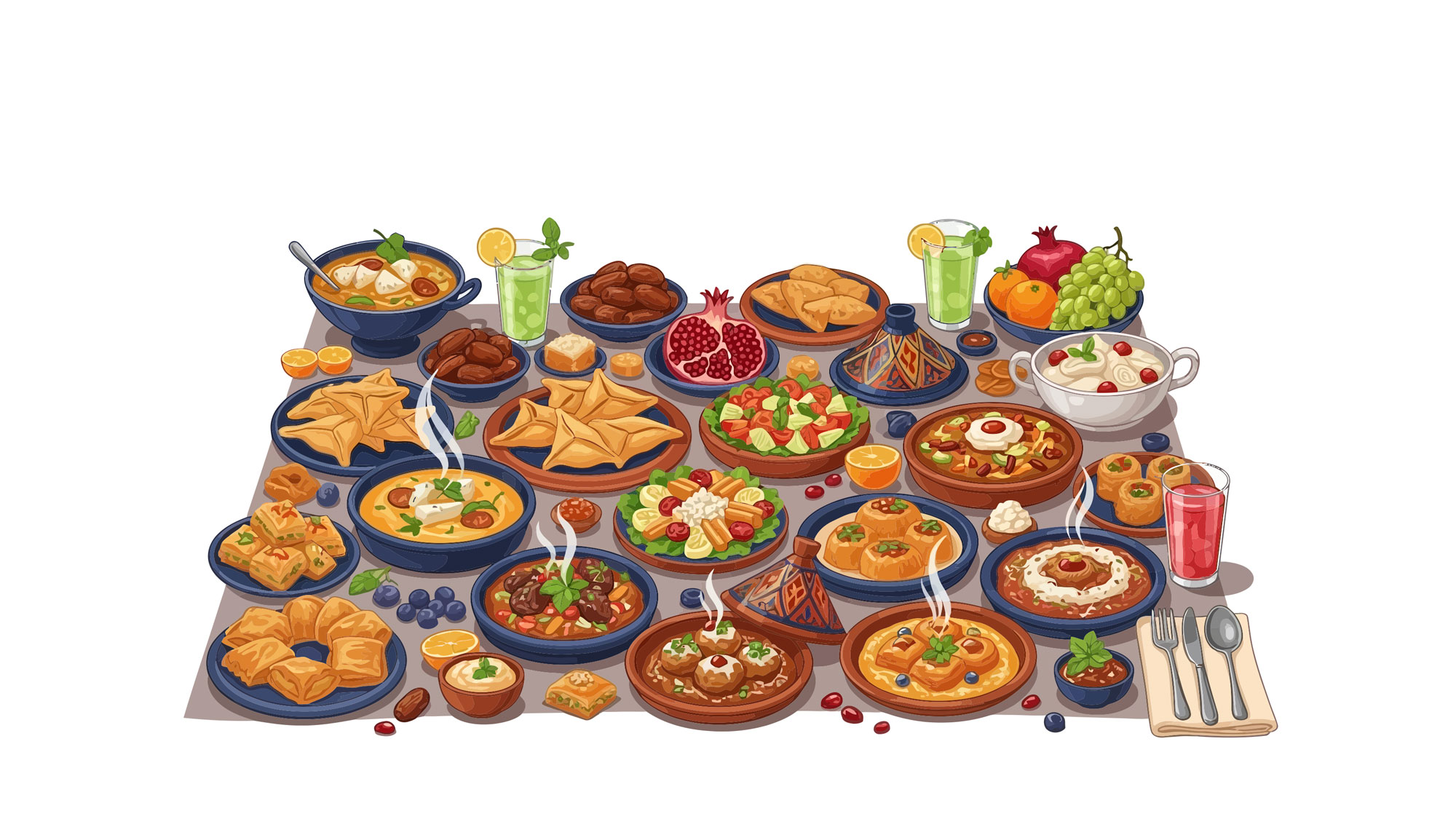
The Manners of Ṣuḥūr and Ifṭār

Performing Salat: A Garden of Goodness


